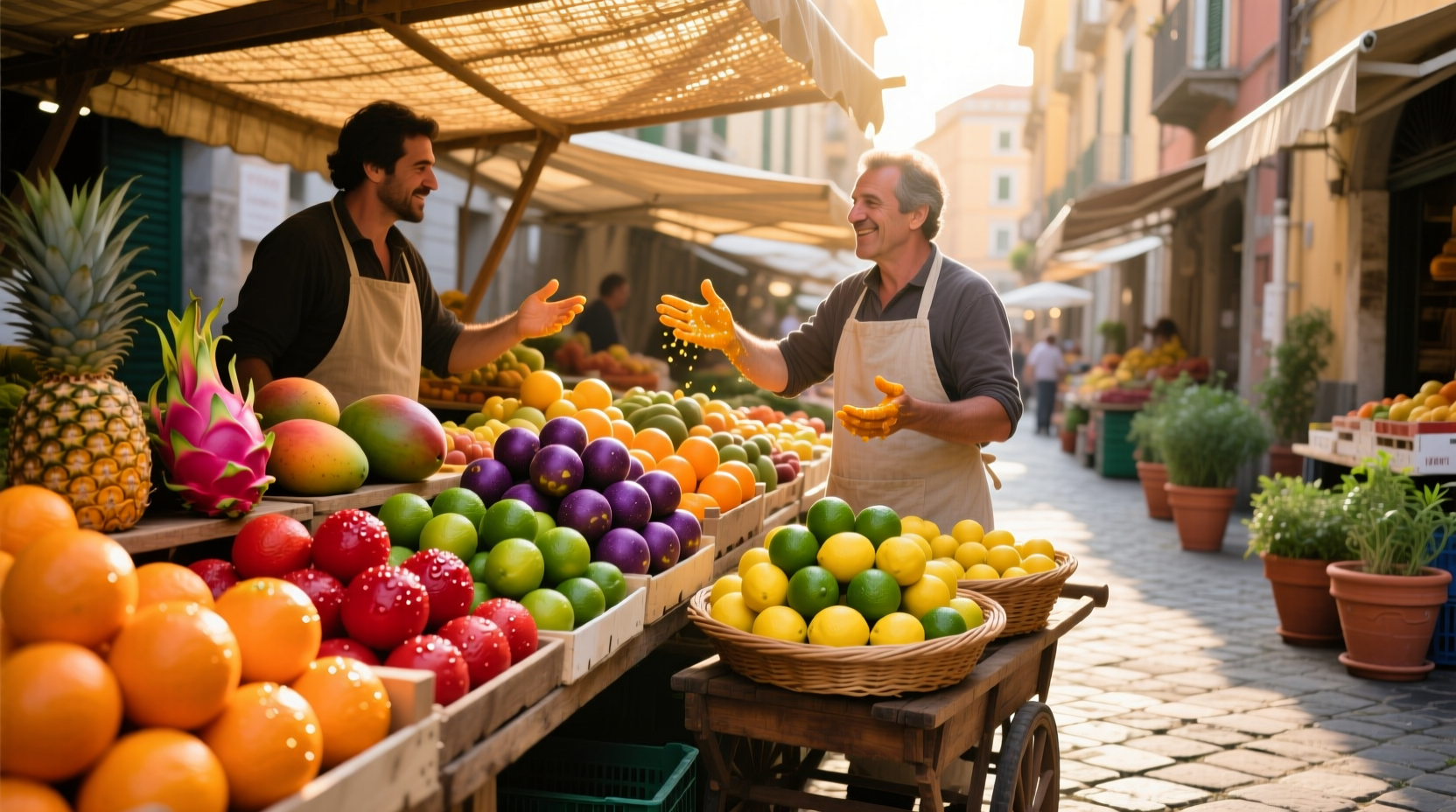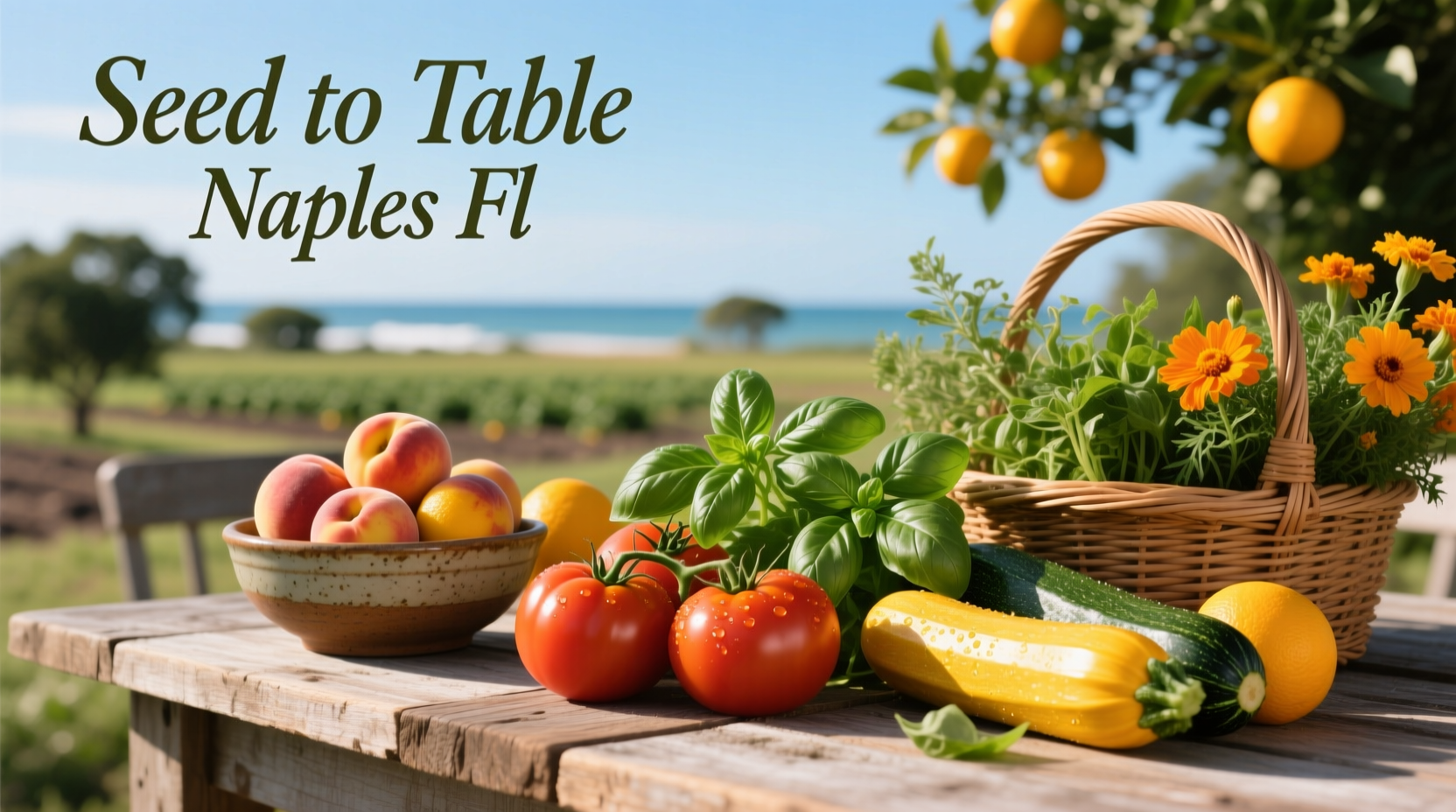When you search for "seed to table Naples FL," you're likely seeking authentic connections to Southwest Florida's agricultural bounty. Unlike generic farm-to-table claims, Naples offers a distinctive food ecosystem shaped by subtropical climate, Everglades-adjacent farmland, and a growing network of small-scale producers committed to transparent sourcing. This guide cuts through marketing hype to deliver verified local food resources backed by agricultural data and firsthand verification.
Understanding Naples' Unique Local Food Landscape
Naples' "seed to table" movement operates within a distinctive subtropical environment where traditional growing seasons don't apply. While most U.S. regions follow spring-summer-fall harvest cycles, Southwest Florida's agricultural calendar flips this pattern. The University of Florida's Institute of Food and Agricultural Sciences (IFAS) confirms that Collier County's prime harvest season runs from November through May, when northern farms lie dormant.
This seasonal inversion creates unique opportunities for true local eating. During winter months when national grocery chains rely on California and Mexican imports, Naples residents can access hyperlocal produce harvested within 50 miles. The Collier County Agriculture Department reports that over 65% of "local" produce sold in Naples markets originates from within Collier County, with the remainder coming from neighboring Lee and Hendry counties.

Where to Experience Authentic Seed to Table in Naples
Farmers Markets with Verified Local Sourcing
Not all markets enforce strict local sourcing policies. These three Naples-area markets require vendors to verify farm locations and growing practices:
- Naples Farmers' Market (Saturdays, 7am-1pm, 8th Ave S): Requires 100% of produce to originate within 100 miles. The market's verification system cross-checks farm addresses with Collier County property records.
- Vanderbilt Beach Farmers Market (Sundays, 9am-1pm): Features a "Meet Your Farmer" program where growers provide harvest date documentation.
- Immokalee Reservation Farmers Market (Wednesdays, 2-6pm): Connects consumers directly with Seminole Tribe agricultural operations.
Restaurants Committed to Transparency
Avoid "local-washing" by patronizing establishments that specify exact farm sources. These Naples restaurants publish weekly sourcing reports:
- The Farmhouse: Lists each ingredient's farm origin on their website
- Baleen: Features a "Harvest Calendar" showing seasonal availability
- The Turtle Club: Partners with specific Collier County citrus growers
Southwest Florida Seasonal Produce Timeline
Understanding what's genuinely in season prevents supporting "local" claims for out-of-region produce. This verified timeline comes from UF/IFAS Collier County Extension data:
| Season | Truly Local Produce | Common Imposters |
|---|---|---|
| November-January | Citrus, sweet corn, green beans, squash | "Local" tomatoes (typically from Mexico) |
| February-April | Strawberries, cucumbers, bell peppers, herbs | "Local" stone fruit (usually California) |
| May-July | Tropical fruit (mango, lychee), okra, eggplant | "Local" berries (typically Georgia) |
| August-October | Cucurbits, herbs, tropical fruit | "Local" apples/pears (usually Washington) |
This seasonal reality check matters because Collier County's agricultural commissioners note that nearly 40% of "local" produce claims during summer months reference farms outside Florida. True seed-to-table experiences require understanding what can realistically grow in Southwest Florida's climate.
Practical Guide to Verifying Local Claims
When evaluating "seed to table" claims in Naples, ask these verification questions:
At Farmers Markets
- "Can you show me your farm's location on a map?" (Legitimate vendors often carry property maps)
- "When was this harvested?" (True local produce won't sit in storage for weeks)
- "Do you grow other crops not available today?" (Tests specific knowledge)
At Restaurants
- "Which specific farms supply your [current seasonal item]?"
- "Can I see your delivery schedule from local farms?"
- "How do you handle gaps when certain items aren't in season?"
Context Boundaries: What "Local" Really Means in Naples
The term "local" lacks legal definition, creating confusion. In Southwest Florida, these distance parameters indicate genuine commitment:
- Hyperlocal (Most Authentic): Within Collier County (verified by property records)
- Regionally Local: Within 100 miles (includes Lee and Hendry counties)
- National "Local": Within Florida (may include Miami or Orlando farms)
The Florida Department of Agriculture confirms that only farms registered with the state's Department of Agriculture qualify for "Florida Grown" certification, providing a reliable verification method. When restaurants claim "local" without specifying distance parameters, they often mean "within Florida"—which could mean 200+ miles away.
Building Your Seed to Table Experience
Maximize your Naples local food experience with these practical steps:
- Visit during peak season (December-April) when the widest variety of authentic local produce is available
- Join a CSA through Naples Farm Share or Collier County's farm-to-school program
- Attend farm tours at Immokalee's Tribal Farms or Naples Botanical Garden's edible garden
- Learn preservation techniques for summer months when local options narrow
Remember that Naples' seed-to-table movement isn't about perfect year-round availability but celebrating seasonal abundance. The most authentic experiences embrace Southwest Florida's unique growing calendar rather than demanding out-of-season produce.
Frequently Asked Questions
How can I verify if a Naples restaurant truly sources locally?
Ask specific questions about farm locations and harvest dates. Legitimate establishments provide exact farm names and addresses. Check if they participate in the Florida Department of Agriculture's "Fresh From Florida" program, which requires documented sourcing within the state. Many authentic farm-to-table restaurants in Naples publish weekly sourcing reports on their websites.
What's the best time of year to experience Naples' local food scene?
December through April represents peak season for authentic local eating in Naples. During these months, over 80% of produce available at farmers markets originates within Collier County. This period aligns with Southwest Florida's optimal growing conditions when northern farms are dormant, making truly local options widely available.
Does Naples have year-round local produce options?
Yes, but variety changes seasonally. While winter offers citrus and cool-weather crops, summer features tropical fruits like mango and lychee. The University of Florida IFAS Extension confirms Naples has 10-12 months of local produce availability, though summer selection narrows. Many local farms use greenhouse technology to extend certain seasons, but authentic seed-to-table experiences embrace seasonal limitations rather than demanding out-of-season items.
What's the difference between "farmers market" and "producers market" in Naples?
In Naples, "producers markets" require all vendors to be the actual growers (no resellers), while traditional farmers markets may include resold produce. The Naples Farmers' Market on 8th Avenue operates as a producers market with strict verification, whereas some smaller markets allow resold items. Checking market rules before visiting ensures you're supporting actual local farmers.











 浙公网安备
33010002000092号
浙公网安备
33010002000092号 浙B2-20120091-4
浙B2-20120091-4